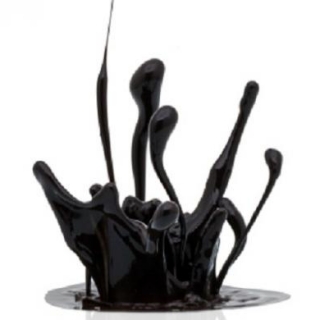


Oil declined for a second day to near its lowest level since early June, with the focus turning to how much OPEC+ will increase output quotas this weekend.
Brent crude traded below $67 a barrel, while West Texas Intermediate was near $65. The Organization of the Petroleum Exporting Countries and its allies are expected to agree to a fourth monthly major supply increase at a meeting on Sunday, according to a Bloomberg survey, as leader Saudi Arabia continues its bid to reclaim market share.
A 411,000 barrel-a-day quota hike is like this weekend and there will probably be another increase next month, said Robert Rennie, the head of commodity and carbon research at Westpac Banking Corp. "As we move into the third quarter and beyond, we see increasing downside risks" and oil could test $60 a barrel, he said.
Oil lost almost 10% last quarter in a volatile three months that saw prices drop sharply in April following President Donald Trump's tariff announcements, surge in June after Israel attacked Iran before erasing gains as hostilities eased. The focus is now returning to supply and demand fundamentals, with potential trade deals and increased OPEC+ production the biggest near-term drivers.
Higher import tariffs are due to restart on July 9 for dozens of top US trading partners. While negotiations are ongoing in a bid to finalize deals after the July 4 holiday, there are signs of snarls with countries including Japan. Trump has threatened fresh levies on the Asian nation, citing its apparent unwillingness to accept US rice imports.
Brent for September settlement declined 0.5% to $66.42 a barrel at 10:25 a.m. in Singapore.
WTI for August delivery fell 0.5% to $64.76 a barrel.
Source : Bloomberg
Crude prices recovered from a midday dip on Friday on hopes Hungary can use Russian crude oil as U.S. President Donald Trump met Hungary's Prime Minister Viktor Orban at the White House. Brent crude ...
Oil prices rose on Friday (November 7th), but remained on track for a second straight weekly loss after three days of declines on oversupply concerns and slowing US demand. Brent crude rose 60 cents,...
Oil prices edged higher but remained on track for a second weekly decline. West Texas Intermediate (WTI) briefly approached $60 per barrel, while Brent held steady around $63 on Thursday. However, bot...
Oil prices declined on Thursday as investors considered a potential supply glut, as well as weakened demand in the United States, the world's largest oil consumer. Brent crude futures settled down 14...
Oil prices edged higher on Thursday (November 6), boosted by easing concerns over a potential oversupply as sanctions against Russian companies began to take effect. After closing at a two-week low i...
Crude prices recovered from a midday dip on Friday on hopes Hungary can use Russian crude oil as U.S. President Donald Trump met Hungary's Prime Minister Viktor Orban at the White House. Brent crude futures settled at $63.63 a barrel, up 25 cents...
US stocks rebounded from early losses to close mostly higher on Friday amid hopes that Congress members were making progress toward ending the government shutdown. The S&P 500 and the Dow Jones closed 0.3% higher, while the tech-heavy Nasdaq...
European stocks fell on Friday as investors digested more quarterly earnings, but weekly losses were inevitable, with concerns regarding overheated valuations evident. The DAX index in Germany dropped 0.8% and the CAC 40 in France declined 0.2%,...
 The U.S. Supreme Court's tough questioning of President Donald Trump's global tariffs has fueled growing speculation that they will be overturned,...
The U.S. Supreme Court's tough questioning of President Donald Trump's global tariffs has fueled growing speculation that they will be overturned,...
 European stocks opened lower on Thursday, as investors reacted to another flurry of corporate earnings.
The pan-European Stoxx 600 was 0.3% lower...
European stocks opened lower on Thursday, as investors reacted to another flurry of corporate earnings.
The pan-European Stoxx 600 was 0.3% lower...
 European stocks fell on Friday as investors digested more quarterly earnings, but weekly losses were inevitable, with concerns regarding overheated...
European stocks fell on Friday as investors digested more quarterly earnings, but weekly losses were inevitable, with concerns regarding overheated...
 Chicago Federal Reserve President Austan Goolsbee on Thursday said the lack of official data on inflation during the government shutdown...
Chicago Federal Reserve President Austan Goolsbee on Thursday said the lack of official data on inflation during the government shutdown...